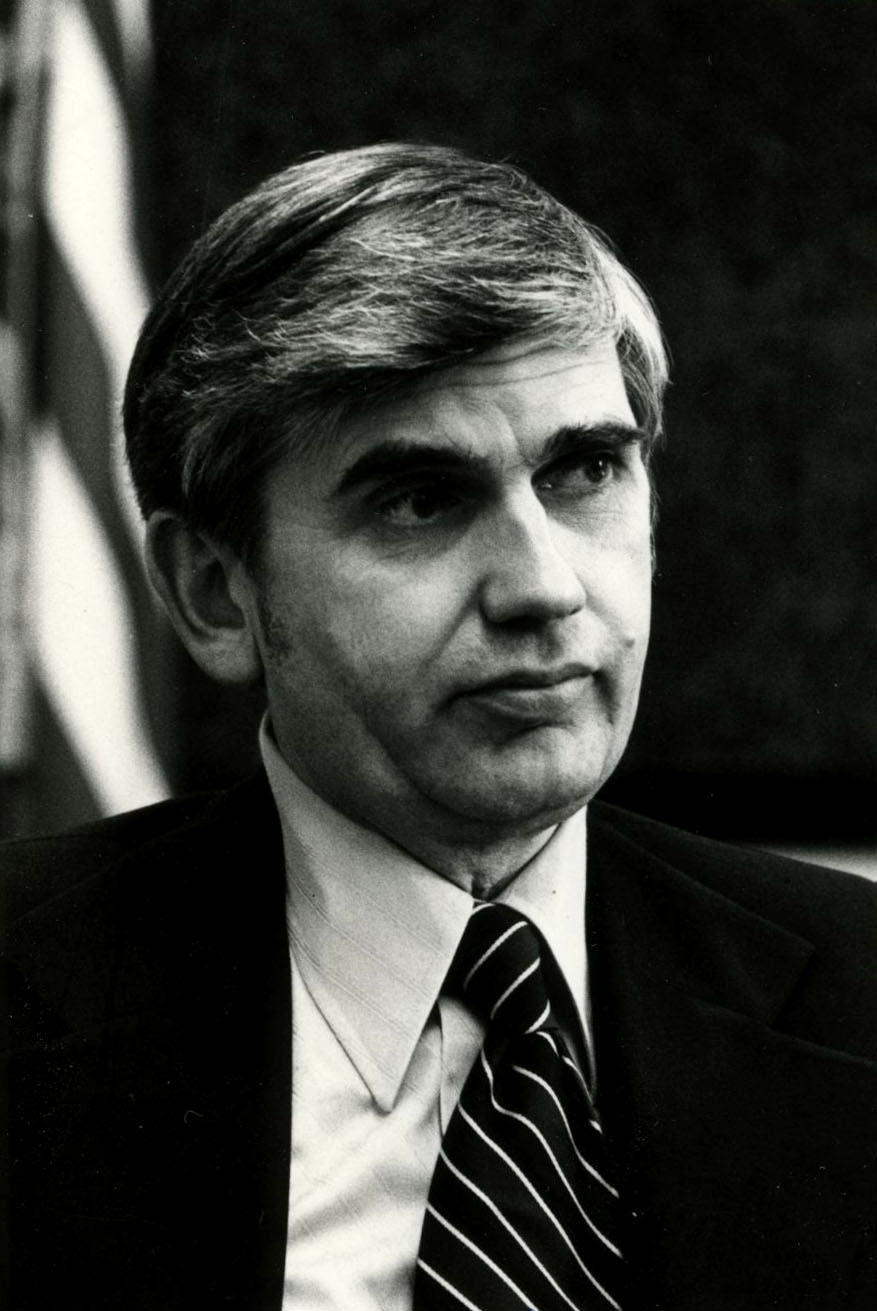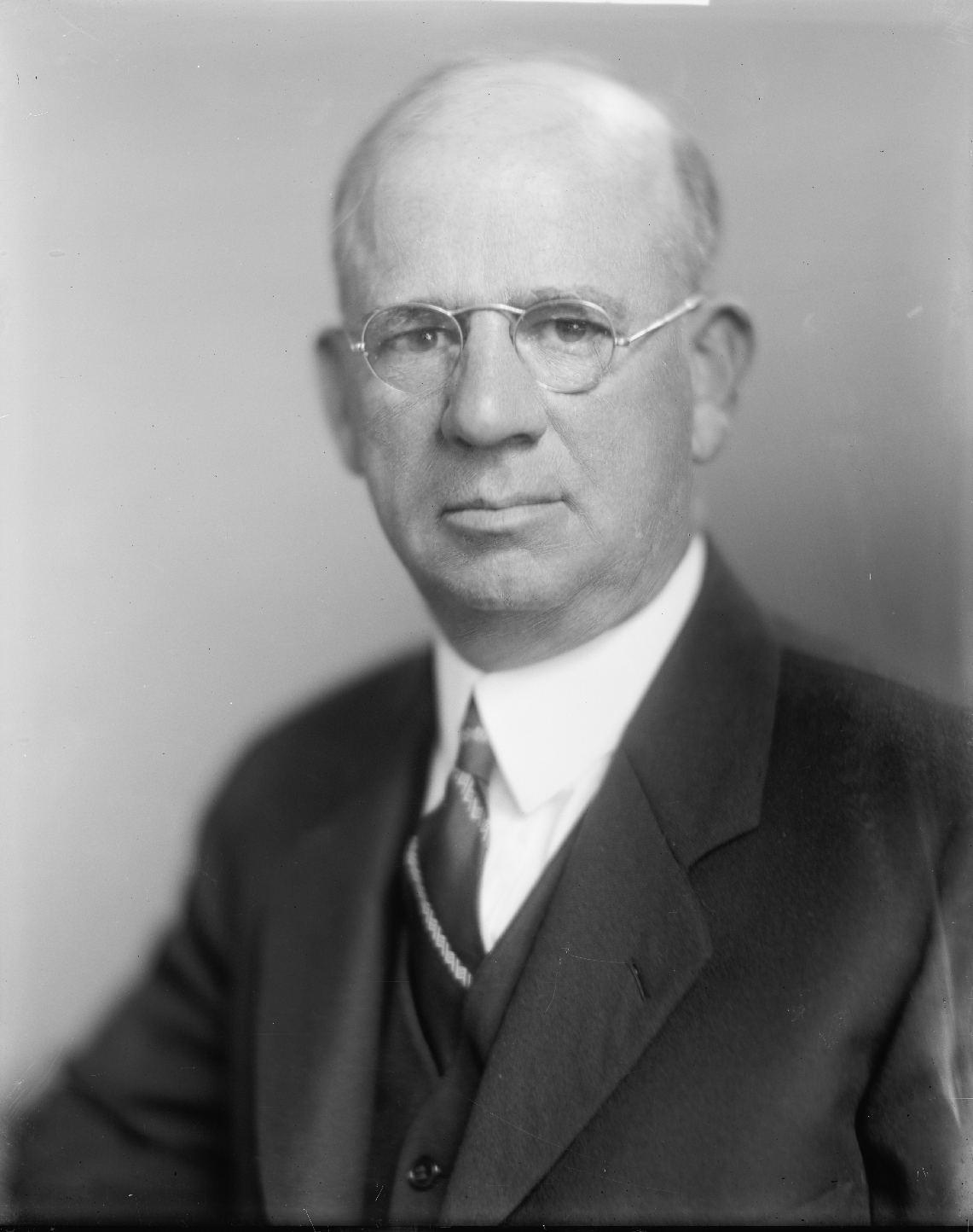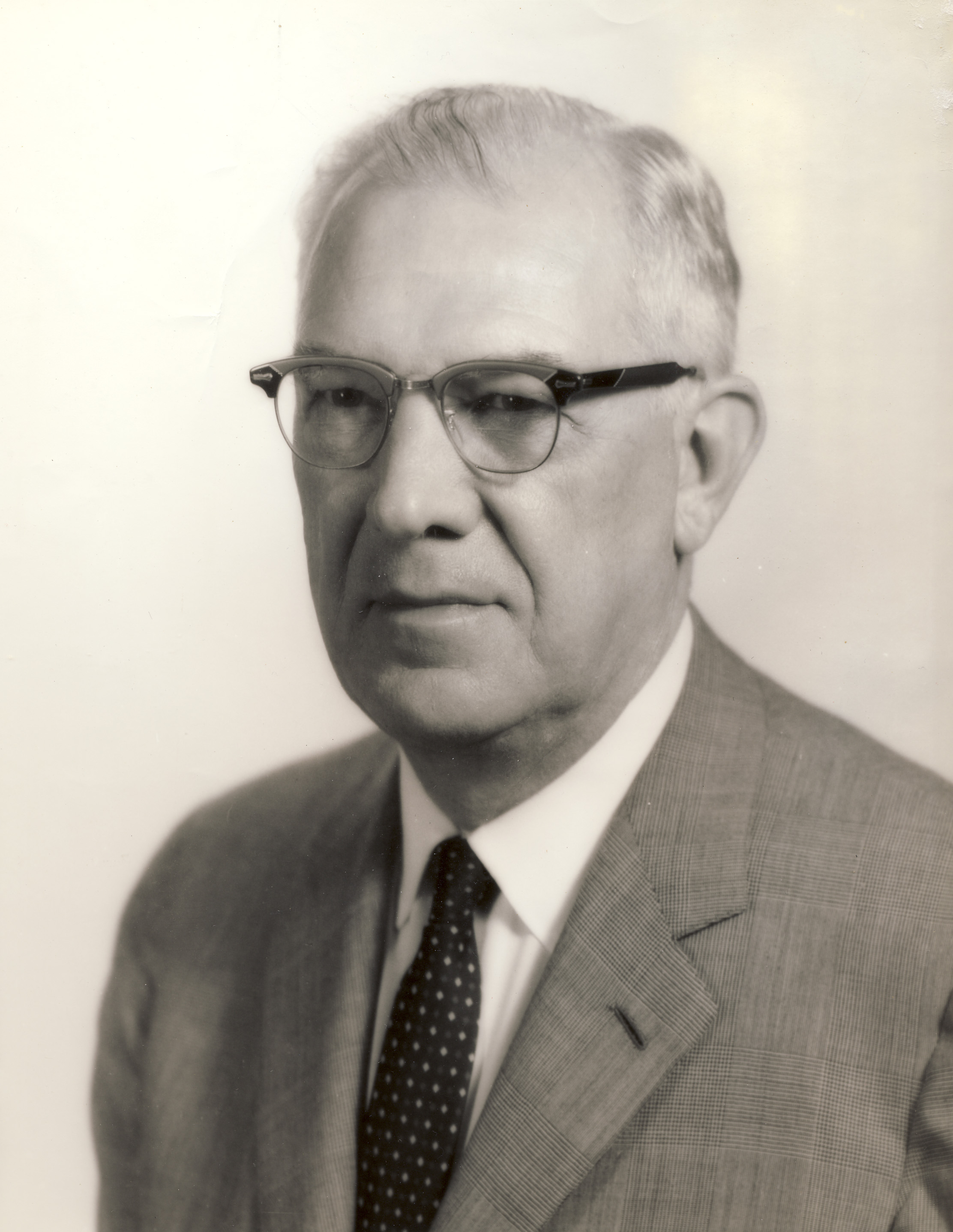As the second longest-serving state chief education officer in Oregon history, Verne Allen Duncan established the direction for school improvement through his 1983 Action Plan for Excellence, and as state senator he was frequently outspoken in protest of policies of his own Republican Party. He was “a moderate’s moderate,” according to the Willamette Week’s 1998 editorial endorsement.
Duncan was born into a pioneer family in McMinnville on April 6, 1934, to parents Kenneth and LaVerne Duncan. His grandfather, Samuel Steen Duncan, was a teacher and superintendent of schools for Yamhill County. After graduating from McMinnville High School and attending Linfield College, Verne Duncan earned a bachelor of arts degree in education and political science from Idaho State University (1960) and a master’s of education in educational administration from the University of Idaho (1964).
He was a teacher, principal, and superintendent of schools in Butte County, Idaho (1954-1966), and adjunct professor at Idaho State University (1963-1966). Duncan served in the Idaho House of Representatives from 1962 to 1965 before returning to Oregon as assistant director of the Bureau of Educational Research at the University of Oregon (1966-1970). He earned a doctorate in public school administration at the university in 1968.
During these years, Duncan was drafted into the U.S. Army and served in active duty from 1956 to 1958. He was commissioned as a second lieutenant in the Operation Challenge program in 1959 and continued in the reserves until 1989, retiring as a colonel after thirty-three years of military service. Duncan’s last assignment was on the staff of the commanding general of the Sixth U.S. Army. He continued in the reserves throughout his career in education.
Duncan was superintendent of the Clackamas County Education Service District from 1970 to 1975 before running for State Superintendent of Public Instruction, a position he won over incumbent Jesse Fasold in 1974. He was the first person in more than forty years to be elected to that office without the benefit of prior appointment to the job. Four years later, he was challenged by Senator Fred Heard, a Democrat from Klamath Falls, and Ruth McFarland, an instructor at Mt. Hood Community College. Duncan won handily in 1978, even without the endorsement of the powerful Oregon Education Association in that election. The Association endorsed him in his first and last election but was upset that he had suggested outlawing strikes and going to binding arbitration. After holding the position for fifteen years, he resigned to become dean of Education at the University of Portland.
Duncan’s years as the head of Oregon education were not without criticism. “He doesn’t have a whole lot of respect at the Legislature,” declared Donald Kruse of Roseburg, a member of the State Board of Education. “Oregon’s superintendent should be the No. 1 lobbyist for education, but Verne is probably uncomfortable in that position. It isn’t his style. But he’s as caring a person as I’ve ever known.”
Acknowledged as a dedicated administrator, Duncan worked hard on behalf of Oregon’s schoolchildren. He spent time with teachers and students at least a half day every week, and he visited all 301 school districts, an unprecedented record. His strong suit was always his rapport with the people of Oregon. Active in leadership positions outside of Oregon as well, he served as chair of the board of the National Council for Accreditation of Teacher Education from 1986-1987 and as president of the Council of Chief State School Officers from 1987 to 1989.
The centerpiece of Duncan’s success was his Action Plan for Excellence in 1983, a program to accelerate school improvement efforts. The plan included putting in place a curriculum in basic academic programs; increasing graduation requirements in math and science; extending the school year from 175 to 190 days; testing students’ basic skills in the third, sixth, and tenth grades; instituting an honors diploma for high-achieving students; and granting State Board of Education authority over the evaluation of teachers and administrators. In support of the plan, Governor Vic Atiyeh declared 1983-1984 the Oregon Year of the Schools.
Duncan resigned the superintendency in 1989 to become dean of education at the University of Portland (1990-1996). His greatest regret was leaving the superintendent’s office before the state had solved the school funding issue. Rather than depending on property taxes, he had long advocated for a state sales tax as the key to funding reform.
In 1997, Governor John Kitzhaber appointed Duncan to replace Republican Senator Bill Kennemer when he became a Clackamas County commissioner. Duncan sought election to the seat in 1998, defeating Monroe Sweetland. During the election, James Moore of Pacific University called Duncan a “pragmatic Republican,” and Willamette Week’s editorial endorsement placed him in the progressive moderate mold of Mark Hatfield and Tom McCall.
During his senate career in 1997-2003, Duncan was assistant majority leader and a member of the Ways & Means, Government Affairs, Judiciary, and Legislative committees, often as chair. He voted with the Democratic minority to oppose the posting of the Ten Commandments in government buildings and classrooms and against HB 3355, which required Oregon Health Plan patients to make co-payments to doctors. He preferred working through the committee structure and often became the swing vote. He also chaired the committee that sponsored improved highway construction, new bridges, and restructured old bridges for the state.
In his retirement, Duncan has served on the boards of the North Clackamas Education Foundation, the Early Head Start Center (Portland), the Oregon Trail Interpretive Center, and the Oregon Solutions-Willamette Falls Locks Project. He was named Alumnus of the Year at Linfield College in 1998 and received the Professional Achievement Award from Idaho State University in 2014. Duncan Elementary School in the North Clackamas School District is named after him. His wife, Donna Nichols, passed away in 2018; Duncan lives in Milwaukie.
-
![]()
Verne Duncan, 1979.
Courtesy Oregon Hist. Soc. Research Lib., 982D171
Related Entries
-
![Lewis R. Alderman (1872-1965)]()
Lewis R. Alderman (1872-1965)
Lewis Raymond Alderman, born and raised in Dayton, Oregon, was an early…
-
![Willard B. Spalding (1904-1981)]()
Willard B. Spalding (1904-1981)
A nationally recognized and respected educator, Willard B. Spalding hel…
Map This on the Oregon History WayFinder
The Oregon History Wayfinder is an interactive map that identifies significant places, people, and events in Oregon history.
Further Reading
Duncan, Verne A. “Kindergarten Issues: A Position Paper.” Oregon State Department of Education. 1987.
Oregon Department of Education, Edu-Gram, October 1983.
Parker, Andy. “Politics Was a Draw Early in Their Lives.” The Oregonian. Nov. 1, 2004, p. B1.
“Political Picks: Endorsements for the May 1998 Election.” Willamette Week, May 6, 1998.
Wright, Jeff. ”Duncan Defends Record.” The Register-Guard. Nov. 7, 1989, p. B1.






